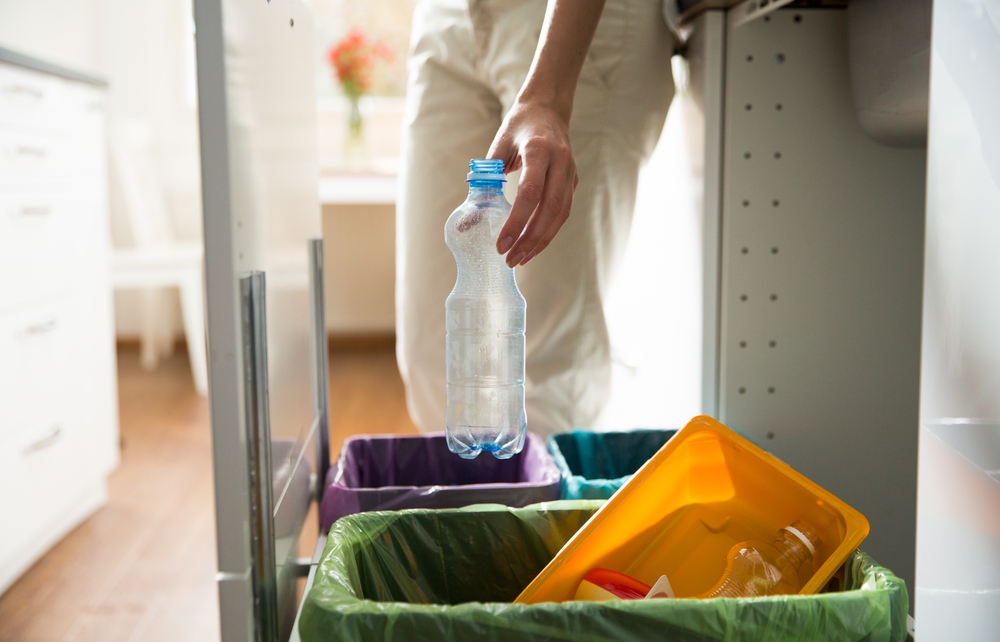These days increased awareness of the impact that plastic is having on our planet and our health has led to more and more people doing what they can to reduce their own personal use of products that contain plastic.
With experts warning that plastic pollution in the sea is going to treble in a decade, it really is important that we all do what we can do to minimise our own personal impact.
But for parents, plastic seems to be in everything we use on a daily basis. So what can be done to reduce your dependence on it? Read on for a few suggestions.
Use reusable nappies
In their lifetime, a baby will use around 5000 nappies, and each disposable one contains plastics that will take hundreds of years to decompose.
Reusable nappies can make a really big difference to the amount of plastic parents send to the landfill site each year, and can even save money in the long run. Some councils actually offer incentive schemes where you get money back for buying them!
The idea may fill you with horror if you’re thinking that this involves stress, mess, and safety pins, but in actual fact reusable nappies these days are not much different to disposable ones.
Even if you still use disposables in situations where it is more practical to do so, combining reusable and disposables will still go a long way toward reducing your plastic output!
Switch out your wipes
Wet wipes are an absolute godsend for parents, coming to the rescue in situations where you have sticky faces and hands to clean, and of course, they’re great when you need to change nappies.
But unfortunately, they contain plastic, meaning that once flushed they clog up our sewer system, and are actually changing the shape of river beds.
Microfibre cloths are very effective and gentle, perfect for use on sensitive skin. They work great with water or gentle cleansers.
Plant-based wipes are biodegradable alternatives to your beloved wipes that are much kinder on the environment and your baby’s skin. However, even these should not be flushed but put into the bin instead.
Tissue is perfectly good in a pinch, and you can buy special sprays to keep in your nappy bag that are all-in-one cleansers.
Make your own wet wipes in a sealed container like a tupperware box to carry with you. This could be pre-dampened kitchen roll or cloths and will take up about the same amount of room in your nappy bag as a packet of wipes. This also usually works out cheaper!
Buy bamboo toothbrushes
As a family, you’ll go through a lot of toothbrushes in a year. That’s a whole lot of plastic if you just buy regular toothbrushes, but you can actually buy plastic free toothbrushes made from bamboo! The best thing is that they don’t even cost any more than their plastic counterparts, so making the switch is a no-brainer.
Use bar soap
Liquid soap is something that most of us have in our homes, but it comes in plastic bottles that we then throw away.
Bar soaps actually tend to last families much much longer than liquid soap, and they are easier for children to use. Plus, they take up less space, and of course are better for the environment.
Buy reusable straws
Straws are very useful for little ones, but disposable straws are a huge environmental problem, causing great distress to sea creatures. Let your children pick out bright colourful reusable straws, and carry them with you when you’re out and about.
Choose a cone
When you take your kids for ice cream, always opt for an ice cream cone rather than a cup, as they come with plastic spoons. This is something that most of us rarely think about!
Buy in bulk
Most of the food you buy for your family comes packaged in plastic, and with the amount of food most families buy each month that’s a lot of plastic thrown away. Buying in bulk will cut down on the amount of packaging, and in fact, in some shops you can even take your own containers.
Buying in bulk almost always works out cheaper too, plus you won’t need to go shopping quite so often.
Recycle
Last but not least, for any of the plastic that does find its way into your home and life, recycle as much as you can! Check what your local council does and doesn’t collect, and get the kids involved with sorting and separating it.

